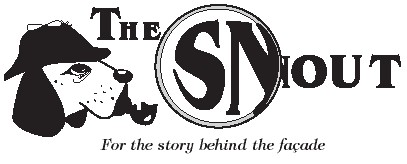During October 2013 the City of Cape Town put out for public comment a draft animal welfare policy for the Western Cape. The Animal Protection Act of 1962 still informs national welfare policy despite the changing values, norms and principles of our new non-racial society being very different from those in place all those years ago when the legislation was passed.
Owing to public pressure, the national government as long ago as 2006 put out a draft policy document called the "Draft Animal Care Policy for South Africa" but since then the trail has gone cold with no progress being made, at national level, on taking up the suggestions in the draft. It is speculated that this is due to cultural practices that are arguably a criminal contravention of the Animal Protection Act.
"These considerations do not, however, constrain the law-makers of the Western Cape where the DA governs at both provincial and city level. Its policies are therefore those that ought to inform the laws, by-laws and regulations in place in this province and its mother city," points out Adv. Paul Hoffman SC, director of the Institute for Accountability in Southern Africa, who also referred to the fact that the DA did not have a policy on animals as disclosed by the Premier of the Western Cape, Helen Zille except that they were opposed to cruelty against animals. Zille suggested that an animal welfare forum be established, which would include all animal welfare organizations. The subsequent draft policy was put out for public participation.
Alan Perrins, Chief Executive Officer for the Cape of Good Hope SPCA and chairperson of the Animal Welfare Forum, feels encouraged by the draft policy which recognizes the sentience of animals and makes sterilization compulsory under certain conditions. (Mandatory sterilization of cats and dogs is a stance already adopted by other Municipalities in South Africa including Swellendam and Kannaland.)
Sterilization as a strategy would address the cause, not just effects, of the many problems attendant upon the over-population of animals, such as the resultant burden on welfare organizations who are filled to capacity with unwanted animals.
Presently a disproportionate amount of donors' funding is being spent on euthanasing instead of re-homing and sterilization. In this respect, the Animal Welfare Forum decries the gross underfunding of municipal pounds such as the official City pound at Atlantis.
An annual figure of, say R 250 000 – R300 000 is woefully inadequate for its efficient running, with the costs then spilling over onto other animal welfare organizations who receive absolutely no funding from the City. The Cape SPCA alone has had to spend around two million rands of donor funds on collecting animals and spaying them or euthanasing them humanely.
Still remaining also, are serious challenges to enforcing the bylaws such as animals being defined as property or possessions in terms of the law while, at the same time, the draft animal welfare policy acknowledges their sentience.
This anomaly can only be resolved by lobbying at national government level as national laws will always supercede provincial ones.
Further challenges, says Perrins, are entrenched cruel practices resulting in avoidable cruelty such as battery farming and sow crates. Fortunately there has been a change in attitude since a decade or so ago with consumers world-wide becoming increasingly aware and abhorrent of cruel farming practices and opting to buy ethically produced foods and goods.
The challenges described are but some of the legal loopholes in the draft animal welfare policy of which just one example is the potbellied pig (also erroneously referred to by the misnomer 'tea cup' pig .
These reside under the classification of farm animals and the problem arises when people don't do their homework properly and then take them into their homes as pets, not realizing (as with huskies) the tremendous problems which can result when the animal reaches adulthood.
The potbellied pig, raised as a four legged child in the family, then suddenly finds himself taken for slaughter in any which way as they are not even afforded the meagre legal protection of pets such as dogs and cats. Only the lucky ones land up at the animal welfare organizations.
Perhaps the way forward would lie in creating a single Department of Animal Welfare under which all animal issues would resort, thus avoiding the current fragmentation to different departments, such as agriculture, health, etc., of issues that are of a cross cutting nature. In this respect Adv. Paul Hoffman points out that the City of Los Angeles established such a "Department of Animal Welfare" in 1978, making them a forerunner in the sphere of implementing and enforcing humane, modern and sensible animal welfare policies.

